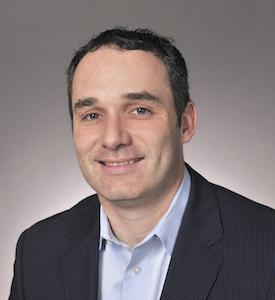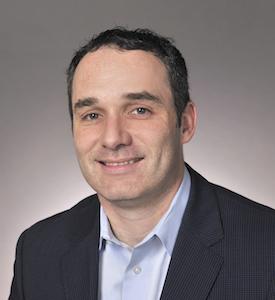
Credit: UT Southwestern Medical Center
DALLAS, Jan. 11, 2017 – UT Southwestern Medical Center researchers have identified a protein that is central to the immune system's ability to recognize and destroy the bacterium responsible for the global tuberculosis (TB) epidemic. The new finding, reported recently in Cell Host & Microbe, could someday lead to the development of immunity-based therapies to treat tuberculosis — which typically takes months to eradicate and has become increasingly resistant to antibiotics — by strengthening this immune pathway, said Dr. Michael Shiloh, Assistant Professor of Internal Medicine and Microbiology.
According to the World Health Organization, TB is a top infectious disease killer worldwide and is estimated to have infected 9.5 million people and caused 1.5 million deaths in 2014. That year, tuberculosis surpassed HIV as the world's most lethal infection.
"The protein Smurf1 functions in specialized white blood cells called macrophages in both mice and humans, thereby suggesting a conserved evolutionary pathway," said Dr. Shiloh, co-senior author of the study along with Dr. Beth Levine, Director of the University's Center for Autophagy Research.
In 2011, UT Southwestern researchers in Dr. Levine's laboratory identified the protein Smurf1 as important for the elimination of viruses and damaged mitochondria from cells via a cellular housekeeping process called autophagy. Dr. Levine is also a Professor of Internal Medicine and Microbiology; a Howard Hughes Medical Institute Investigator; and holder of the Charles Cameron Sprague Distinguished Chair in Biomedical Science.
That result led to the current study, a collaboration between the Shiloh and Levine laboratories to determine if Smurf1 plays a similar role in the autophagy of bacteria like M. tuberculosis inside cells.
In addition to recycling components of the cell to provide nutrients during starvation and acting as quality control for the organelles and proteins inside cells, autophagy helps eliminate pathogens such as viruses, parasites, and bacteria that get inside the cell. During antibacterial autophagy, the bacteria get tagged with the protein ubiquitin, marking them for destruction by an organelle called the lysosome. The role of Smurf1 — one of hundreds of E3 ubiquitin ligases in mammals — was unknown in this process.
In this study, the researchers found that macrophages from mice lacking Smurf1 were unable to attach the death-tagging protein ubiquitin to intracellular bacteria, resulting in a failure of the autophagy pathway and runaway growth of the bacteria inside the cells. When infected with TB, mice lacking Smurf1 had higher bacterial loads, increased lung inflammation, and accelerated mortality compared to mice with normal Smurf1 activity, Dr. Shiloh said.
The researchers next showed that the Smurf1 gene controls M. tuberculosis growth in human macrophages and that the Smurf1 protein was found in association with bacteria in the lungs of patients with tuberculosis infections.
"Even though humans mount a defense against M. tuberculosis that can contain its growth, in general that defense is insufficient to kill the bacteria," Dr. Shiloh explained. "Finding ways to harness or enhance the autophagy pathway and Smurf1 could lead to new strategies to kill intracellular bacteria like those that cause TB," he added.
###
Other UT Southwestern co-authors include lead author Dr. Luis Franco, Assistant Instructor of Internal Medicine; Dr. Vidhya Nair and Dr. Caitlyn Scharn, both postdoctoral researchers in Internal Medicine; Dr. Jose Torrealba, Associate Professor of Pathology and Director of Surgical Pathology, IHC and Histology Laboratories as well as Associate Director of Anatomic Pathology and holder of the George and Anne Race Distinguished Professorship of Pathology.
The study received support from the National Institutes of Health and the Howard Hughes Medical Institute.
About UT Southwestern Medical Center
UT Southwestern, one of the premier academic medical centers in the nation, integrates pioneering biomedical research with exceptional clinical care and education. The institution's faculty includes many distinguished members, including six who have been awarded Nobel Prizes since 1985. The faculty of almost 2,800 is responsible for groundbreaking medical advances and is committed to translating science-driven research quickly to new clinical treatments. UT Southwestern physicians provide medical care in about 80 specialties to more than 100,000 hospitalized patients and oversee approximately 2.2 million outpatient visits a year.
Media Contact
Deborah Wormser
[email protected]
214-648-3404
@UTSWNews
http://www.swmed.edu





